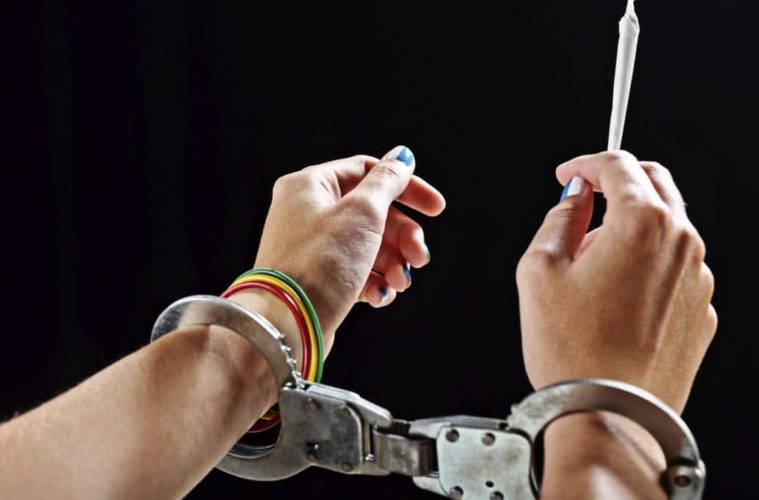2018 was a busy year for Miami Police as marijuana possession arrests, even those for small amounts, were more prevalent than the past two years. Even though Miami passed legislation decriminalizing the possession of small amounts of cannabis, needing only a civil citation to enforce the law, police recorded more arrests. The Department of Corrections for Miami-Dade County released the arrest data for this past year showing that there were a total of 2,107 people were charged with a primary offense of misdemeanor possession, carrying an amount less than twenty grams. This number of arrests jumped by 78 from 2017, and a whopping 335 more than the previous year.
Going even further back, in 2015, county commissioners authorized legislation allowing police to issue tickets rather than detaining people for misdemeanors including possession of small amounts of cannabis. This legislation extends beyond marijuana and could be used in cases such as trespassing and even stolen shopping cart possession. Many departments across the county signed on to the program, including the Miami police department. However, each year more and more people are being arrested.
Nearly 10,000 people have been arrested for misdemeanor cannabis possession in the past five years, the majority of those arrests coming in just the past three years since this legislation was passed. A total of 5,908 people have been arrested since 2015 for possession of less than twenty grams. It must be noted, there are instances where police were forced to make an arrest due to other charges being made in addition to the misdemeanor possession, disqualifying the ability to issue a citation. It also must be noted, that there have been no comments from the city or county police on this matter.
A report made by New Times in August of last year showed that an overwhelming majority of these possession cases end up being thrown-out by state prosecutors. This means it is an enormous waste of resources to make the arrests in the first place. Police are electing to take the time to search, detain, and transport individuals to jail (which also involves booking reports and other paperwork consuming even more of the officer’s time) essentially only to be dropped later on by prosecutors. While this is only a waste of time and resources for police, this is having a detrimental effect on the lives of the people being arrested. The investigation suggested that although most of the cases end up being dropped, the arrested party will often spend at least one night in jail, post bail, and are given a court date to appear and will now have an arrest on their record; which can have many subsequent consequences. This process of catch and release consumes millions of dollars from taxpayers as well as thousands of man-hours from law enforcement officers.
A further study by New Times showed that police are, in-fact, practicing issuing the civil citation, but primarily with caucasian suspects. Of the more than 10,000 tickets issued for misdemeanors, nearly 72 percent of those tickets were issued to caucasian individuals.
New Times also pointed out that nearly 85 percent of crimes reported to police in Miami-Dade County go unsolved. They claim the state’s lowest “clearance rate” which is the term used to describe the percentage of police reports that culminate with an arrest. While the statewide clearance rate is roughly 20 percent, in Miami-Dade it is only 15.4 percent.
Pot possession in misdemeanor amounts as well as trespassing accounted for the majority of arrests totaling 2,142, outnumbering the arrests for car theft, robbery, burglary, rape, and homicide combined which totaled 1,927 in just the first six months of last year. This does indicate a downward trend in the total crime rate in Miami-Dade, but it also indicates less crimes are being solved. At the same time, more people than ever are being arrested for decriminalized activities.
Even more surprising, police are choosing to arrest the homeless population in larger numbers rather than pursue more high-value targets that will have a higher chance of being sentenced and incarcerated. Police have been reported arresting homeless individuals for crimes such as stolen shopping cart possession as mentioned earlier, as well as “unlawful use of a dairy crate”; many in the homeless community use these discarded crates as seats.
It seems that police in Miami-Dade are prioritizing decriminalized offenses to boost arrest numbers while neglecting other, more serious crimes. This is often a huge waste of resources because these misdemeanor crimes are often discarded in court. Man-hours that could be devoted to pursuing more egregious criminal activity are being devoted to unnecessary arrests and meaningless court cases, while the unsolved crime rate continues to rise. Meanwhile taxpayers are left footing the bill. We will see if this trend continues as we move through 2019.

